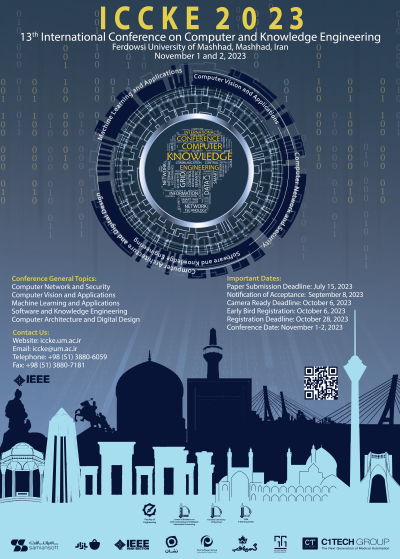0% Complete

Authors :
Keywords :
Abstract :
List of archived papers
Rahman Mohammadi - Seyed Reza Razavi Pour
Fatemeh Naserizadeh - Erfan Akbarnezhad Sany - Parsa Sinichi - Seyyed Abed Hosseini
Saeed Sarbazi-Azad - Ahmad Akbari - Mohsen Khazeni
Mir Mahdi Safari - Jafar Pourrostam - Behzad Mozaffari Tazehkand
Ali Yazdani - Hossein Simchi - Yasser Shekofteh
Fatemeh Asghari - Mahsa Khorasani - Mohsen Kahani - Seyed Amir Amin Yazdi - Mahdi Arkhodi Ghalenoei
Mohammad Naisipour - Saghar Ganji - Iraj Saeedpanah - Behnam Mehrakizadeh - Ahmad Reza Labibzadeh
Amirhossein Safari - Narges Mokhtari - Mohsen Hooshmand - Sadegh Sadeghi - Peyman Pahlevani
Kimia Soroush - Mohsen Raji - Behnam Ghavami
Mohammed Wadi - Wisam Elmasry - Mohammed Jouda - Hossein Shahinzadeh - Gevork B. Gharehpetian




